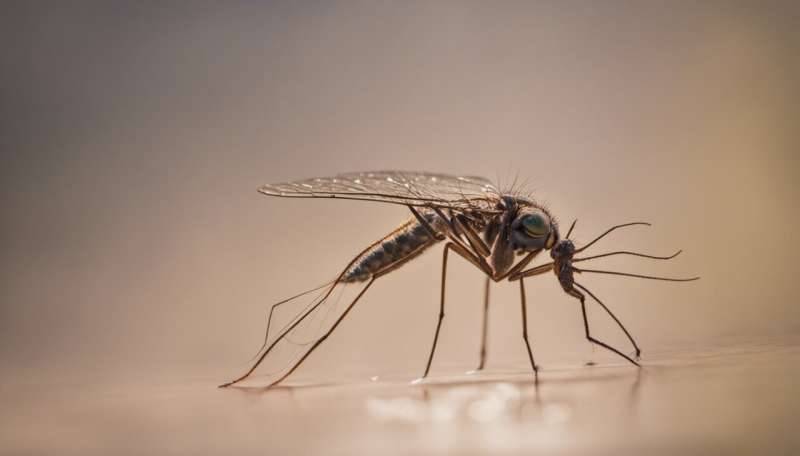Credit: AI-generated image (disclaimer)
A detection assay that identifies the presence of viral-specific antibodies in patients with Chikungunya virus (CHIKV) has been developed by A*STAR researchers. The technique can also help differentiate between CHIKV and other mosquito-borne viruses.
The alphavirus CHIKV and the dengue flavivirus (DENV) cause similar symptoms in the early stages of infection, including fever and joint pain. This similarity makes it difficult for doctors to discern which disease a patient has and administer the appropriate treatment. Simultaneous outbreaks of both diseases in parts of Asia, Africa and the Americas has intensified the need for an effective method for differentiating them.
"We previously demonstrated that the early, naturally-acquired antibody response in patients is directed against a specific part of a CHIKV protein - the E2EP3 epitope," explains Lisa F.P. Ng from the A*STAR Singapore Immunology Network (SIgN). "We realized E2EP3 could play a role in future diagnostic and preventive applications, and this inspired us to conduct the present study."
The team wanted to develop an easy-to-use, accurate detection assay to improve on current techniques for diagnosing CHIKV. They theorized that the presence of anti-E2EP3 antibodies in patients would be a useful indication of CHIKV, particularly if the antibodies were specific to the illness.
"We decided to test the E2EP3 antibody response in patient samples collated from different CHIKV outbreaks, and samples from other mosquito-borne viruses such as DENV," explains Ng. "We developed an E2EP3-based assay to determine the prevalence and activity of the antibodies in the samples."
The researchers analyzed 260 blood samples collected from 38 patients with CHIKV during the Singapore outbreak of 2008–2009. From this, 72 per cent of CHIKV patients tested positive for anti-E2EP3 antibodies in the early stages of the illness, rising to 100 per cent as the disease progressed. These antibodies showed strong propensity to neutralize CHIKV, and the new assay was far more accurate than the existing CHIKV diagnosis method.
The team from SIgN and the Environmental Health Institute (National Environment Agency) compared these results with samples from patients infected with different CHIKV strains, other non-CHIKV alphaviruses, and flaviviruses such as DENV. The other alphavirus samples reacted to E2EP3, but only seven per cent of the flavivirus samples reacted. Crucially, none of the flavivirus samples were able to neutralize CHIKV, regardless of the presence of anti-E2EP3 antibodies.
"With this assay we can rapidly diagnose early-stage CHIKV and distinguish it from DENV," says Ng. "Doctors will be able to administer the correct treatment quickly, reducing the costs of unnecessary medication and hospitalization."
More information: Yiu-Wing Kam et al. Sero-Prevalence and Cross-Reactivity of Chikungunya Virus Specific Anti-E2EP3 Antibodies in Arbovirus-Infected Patients, PLoS Neglected Tropical Diseases (2015). DOI: 10.1371/journal.pntd.0003445
Journal information: PLoS Neglected Tropical Diseases























